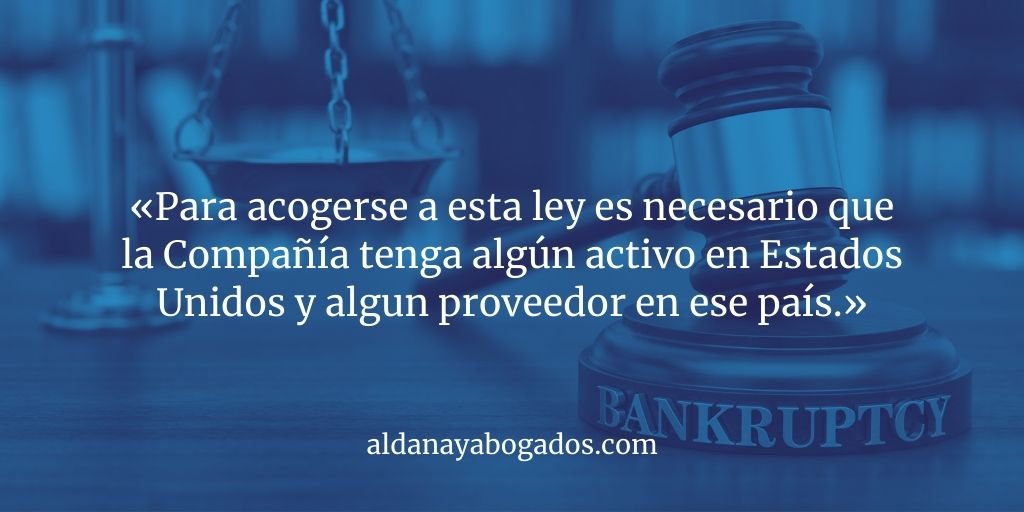On bankruptcy law. The economic crisis experienced as a result of the pandemic has asphyxiated many companies that have not had sufficient liquidity to face the losses implied by the paralysis of their operations.
Many companies around the world have experienced critical momentsdue to the emergency caused by the Covid pandemic - 19. Companies dedicated to priority services have been able to survive the impact of the quarantine; however, those whose services are not considered essential have had to reinvent themselves or assume the consequences of the monetary losses. The problem is that not all companies have enough capital to sustain themselves by staying closed for so long and for that reason, they have had to resort to various alternatives or declare bankruptcy to try to save themselves from imminent closure.
Bankruptcy Law: the case of Avianca and Latam
Such is the case of the airline Avianca, whose executives decided in May of this year to file for Chapter 11 of the U.S. Bankruptcy Law.. Applying for this legal process allows companies in critical financial condition to reorganize under the supervision of the U.S. judicial system. A company files for bankruptcy when it is unable to pay its debts and does not have sufficient financial liquidity.
In the case of Avianca, filing for Chapter 11 implies financial relief and debt reorganization.without the need to suspend operations or liquidate the assets in its name. In 2003 the company resorted to this figure, which has also been used in the past by other airlines such as Delta and American.
In a press release Avianca informed its customers that it is authorized to continue operations.The air restrictions imposed by the pandemic will be lifted as soon as the air restrictions are lifted. Important business decisions must be made by the court, due to the legal measures established in Chapter 11 of the U.S. legislation.
To benefit from this law, it is necessary for the Company to have any assets in the United States and a supplier in that country, the company must also propose a reorganization plan and negotiate such plan with its creditors.
Chapter 11 of the U.S. Bankruptcy Act aims to The benefit allows companies to continue their operations in order to reorganize and thus pay off their debts.
In Colombia, the Corporate Insolvency Law enacted in 2006 also offers protection in these situations of economic emergency.The Insolvency Regime protects credit and supports the recovery and preservation of the company as an economic unit. It can be applied to natural persons and legal entities that carry out commercial operations, of a private or mixed nature, within the Colombian territory. Once this process is set in motion, all assets and creditors of the natural or juridical person are bound to it with the intention of achieving business reactivation.
Spain also has a legal system in which companies or self-employed individuals can declare bankruptcy. when they do not have sufficient capacity to pay their own debts, i.e., they are going through a complex economic situation. This recourse allows creditors to be paid and solutions to be found that provide oxygen to the company to avoid closure. Spanish insolvency law distinguishes between the terms insolvency and bankruptcy. The former refers to a legal means to prove the critical economic situation in which the company finds itself and in which there is the possibility of renegotiating debt payments; while the latter corresponds to the process in which the definitive closure is decreed and the debtor's assets are set aside for the payment of creditors.
In order to face economic crises of this nature, it is very important to have a thorough knowledge of the real situation of the company. and to have all the information to make decisions that support the reactivation, especially at this time when the whole of humanity is going through an atypical situation.
In Venezuela
The Venezuelan Commercial Code mentions the state of bankruptcy. in the event that the merchant ceases to pay its commercial obligations. Venezuelan legislation typifies three types of bankruptcy: fortuitous, arising from force majeure or events for which the merchant is not responsible; culpable, caused by the merchant's conduct; and fraudulent, produced by fraudulent acts. When a declaration of bankruptcy is made, the merchant is disqualified from the administration of all his assets, as well as from their disposition.













